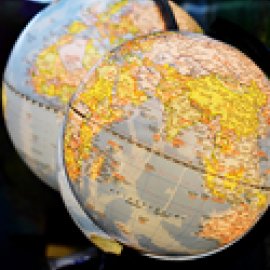RESCUE, part 27: How to Advance Ocean Literacy
-
English
-
ListenPause
[intro music]
Welcome to World Ocean Radio…
I’m Peter Neill, Director of the World Ocean Observatory.
Whatever steps we have taken historically to protect the ocean through public engagement have not been enough. In reality, everyone on Earth is a member of a global community of “Citizens of the Ocean,” and their engagement is essential to our plan for R.E.S.C.U.E. that we have been discussing in the last 26 editions of World Ocean Radio. Despite all the research and science, despite all the policy, proposed and applied, the political will exerted by such an informed audience, through individual and collective action, will not be virile or viral enough to overcome the forces of conventional thinking and vested interests unless we can devise a powerful vector of enduring, subversive power and transformational effect.
Thus, a major expansion of information and instruction is required to build Ocean Literacy across every level of education and action by any and all organizations with an interest in applying new values, structures, and behaviors for ocean conservation and sustainability. Since 2013, a group of educators in the United States has been working on a set of essential principles and fundamental concepts about the ocean to create a matrix for teaching and learning about the ocean to be incorporated into basic curriculum in schools everywhere. A similar effort has been made in Europe, South America, Africa, and China, and the core content, often discussed here on World Ocean Radio, may be found at www.oceanliteracy.net. The United Nations program, promoted by the UNESCO Intergovernmental Oceanographic Commission, may be found at www.oceanliteracy.unesco.org. I urge every citizen, every parent, every teacher, and every ocean enthusiast to visit these sites to shape their understanding of ocean interaction with all things, with ocean connection among all peoples, and with ocean implication for our future so dependent on the steps we take to learn and support necessary ocean regulation and governance, agreement and treaty, and immediate implementation of adequate protection and sustainable use.
There is hope to be found in the work of the National Marine Educators Association, the European Environmental Educators Association, and the many schools and groups worldwide that are working to demonstrate how integration with natural environments and systems is not only necessary pedagogically, but also demonstrably effective in the classroom. Environmental organizations, place-based learning programs, outdoor experience providers, summer and gap-year offerings, and major offerings in our universities – all are providing access for participants of all ages, incorporating new, informed, participatory engagement with Nature as a foundation for their curricular core for all levels of learning. Students are studying native plants, exploring tide pools, growing gardens, building in-school aquariums and aquaculture experiments. Classes are being held outside, on schoolyard grounds, local natural trails, on field-trips, and other programs in partnership with environmental education and conservation organizations. Sailing school semesters, summer camps, ocean schools, land trusts, urban youth programs – you can find such outdoor experience and meaningful instruction now welcome and flourishing in all of these.
The great irony here is that the parents of these youth, as a generation, myself included, have been complicit in the climate crisis that this instruction is intended to correct. Recently, I was asked to give a lecture on ocean and climate, and, as part of my agreement, I asked the sponsor to urge every attendee to bring a guest, either 20 years younger or 20 years older, as a means to create a context for inter-generational dialogue. As statistics disturbingly indicate, the incidence of psychological concern and upset among our children over climate change is growing, implication that their very future is at risk, and it seems important that a shared conversation might serve as a small step toward sharing the need for understanding and responsibility for reparation among us all. We owe that to our children. In “Not Too Late”, a new collection of essays on the contemporary climate challenge worldwide, edited by Rebecca Solnit and Thelma Young Lutunatabua, a distinction is drawn between “optimism” and “hope.” Optimism is a state of mind, an orientation but not an action. Hope, on the other hand, is optimism applied, a context action that, collectively shared, unites us in common purpose and specific application. Ocean Literacy is a program of hope and, for your consideration, an expression of RESCUE: R for renewal; E for environment; S for society; C for collaboration; U for understanding; and E for engagement.
We will discuss these issues, and more, in future editions of World Ocean Radio.
[outro music]
This week on World Ocean Radio we continue the RESCUE series with recommendations to further protect the ocean--by building ocean literacy into every level of education and action around the world.
About World Ocean Radio
Peter Neill, Director of the World Ocean Observatory and host of World Ocean Radio, provides coverage of a broad spectrum of ocean issues from science and education to advocacy and exemplary projects. World Ocean Radio, a project of the World Ocean Observatory, is a weekly series of five-minute audio essays available for syndicated use at no cost by college and community radio stations worldwide.
- Login to post comments



